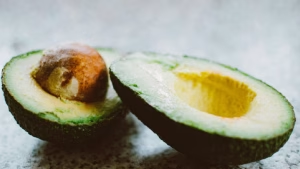
Can the ketogenic diet cause constipation? Know how to fix it
Constipation is a common side effect of the keto diet. Small changes like staying hydrated and eating high-fiber foods can help. The keto diet is high in fat and low in fiber, which can cause constipation.
Although the ketogenic diet is beneficial for weight loss, few people talk about its side effects. Ketosis constipation is one of the biggest problems experienced by people on this diet. Low fiber intake can cause constipation. However, there are ways to prevent constipation while on a ketogenic diet. Make sure your diet is rich in fiber, vegetables, and fruits. Also, don’t forget to stay hydrated so that you can maintain a healthy digestive system. Read on to learn how to deal with constipation on the ketogenic diet, what you should eat, and what you should avoid.
What is the keto diet?
The ketogenic diet, commonly known as the keto diet, is a low-carb, high-fat diet designed to shift the body’s metabolism from carbohydrates to fat for energy. By reducing your carb intake (usually 20-50 grams per day) and increasing your fat, the body enters a metabolic state called ketosis. In ketosis, fats are broken down into ketones, which are another source of energy for the brain and body. While this diet has been proven to provide rapid results, it does have its drawbacks. Constipation is common on the keto diet.

Can a ketogenic diet cause constipation?
Yes, a ketogenic diet can cause constipation due to the following reasons:
1. Switch to a low-carb diet
When you reduce your carbohydrate intake on a ketogenic diet, your body needs time to adjust. This change can have a negative effect on your digestive system, causing symptoms such as constipation. A study published by StatPearls shows that keto is a low-carb, fat-free diet that causes problems such as constipation, diarrhea, and large bowel movements.
2. Low fiber
The keto diet limits fiber-rich foods like fruits, vegetables, and whole grains. Fiber is important for maintaining normal bowel movements by adding bulk to stools and absorbing water into the intestines. Constipation is more likely to occur when there is not enough fiber. Grains and legumes are high in fiber and are not allowed on the keto diet because they also contain carbohydrates. For this reason, constipation is common on the ketogenic diet. A study published in the journal Current Issues in Cardiology found that you need to consume 30-45 grams of fiber per day to prevent constipation, which is not allowed on the ketogenic diet.
3. Too much fat intake
The ketogenic diet is high in fat and can be difficult for some people to digest. Eating too much fat slows down digestion and causes constipation. A study published in Neurogastroenterology & Motility found that a high-fat diet was associated with constipation in all groups of participants.
4. Dehydration
The ketogenic diet can cause increased urination, which can lead to dehydration if fluid replacement is not adequate. Dehydration can make stools hard and very difficult to pass, causing constipation. People also tend to feel more thirsty while on a ketogenic diet. High levels of ketones can cause dehydration and lead to electrolyte deficiencies. A study published in Epilepsy Now found that dehydration was the earliest symptom.

How to prevent constipation on a ketogenic diet?
You can try these tips to prevent constipation from a ketogenic diet.
1. Increase your fiber intake
Add low-carb vegetables like spinach, broccoli, garam masala, and green beans to increase your fiber intake.
2. Replenish electrolytes to stay hydrated
Drink plenty of water, lemon water, and red salt or buttermilk to stay hydrated and balance electrolytes. This will help prevent constipation.
3. You can eat ghee
Ghee lubricates the digestive system; Ghee coffee and ghee tea are healthy options for both ketogenic and regular diets.
4. Psyllium husk
Eat with water or curd to add fiber, but drink enough water. Psyllium husk is a simple laxative. It is effective in treating constipation and diarrhea. It can also help treat hemorrhoids and other gastrointestinal problems.
5. Consume fermented foods
Don’t forget to add cottage cheese or traditional sugar-free pickles to support probiotics and gut health. According to research published in the journal Genes, this leads to improved gut bacteria, gut microbiome diversity, and gut health. Fermented foods are keto-friendly because the fermentation process helps reduce carbohydrate content.
6. Add healthy fats
Use coconut oil or ghee as a healthy fat to support digestion. You can try incorporating avocado into your keto diet plan.
7. Herbal remedies
There are some home remedies you can try to treat keto constipation. To aid digestion and relieve constipation, it is beneficial to use thrips or carom seeds (ajwain). Carrot seeds can be taken with lukewarm water to relieve constipation.
8. Exercise regularly
Walk or do yoga poses (like Breeze Pose or Pawanmuktasana) after meals to improve digestion. Check out other yoga poses for constipation relief.
What can you eat on a ketogenic diet to prevent constipation?
1. Spinach
Spinach is high in fiber and low in carbs. This makes it an ideal keto diet. According to the Food and Drug Association, one cup of raw spinach contains 0.66 grams of fiber. So it’s perfect for curries or soups.
2. Cauliflower
Cauliflower is effective in treating constipation on the ketogenic diet. According to the American Food and Drug Association, there are two grams of fiber per 100 grams. So it’s best used to make low-carb rice or mash, rich in fiber.
3. Okra
Okra is a fiber-rich vegetable that can be stir-fried or added to curries. According to the FDA, 100 grams of okra contains 3.2 grams of fiber. This is ideal for constipation on a ketogenic diet.
4. Avocado
Avocados are rich in fiber, which aids digestion. According to the Food and Drug Association, one avocado contains 13.5 grams. This high fiber content makes it ideal for the ketogenic diet.

5. Coconut oil
Coconut oil contains MCTs, which improve digestion and relieve constipation. Coconut oil has a laxative effect. It helps speed up metabolism. This helps food pass quickly and easily and prevents constipation.
6. Ghee
It helps to lubricate the digestive system and support digestion. Ghee has many benefits and can be consumed every day.
7. Curd
Curd or Greek yogurt is rich in probiotics. This means it supports gut health and aids digestion. So make sure to include a cup of curd in your daily ketogenic diet plan.
8. Green beans
Green beans is a low-carb vegetable that adds fiber to the meal. According to the FDA, 100 grams of green beans contain 2.7 grams of fiber.
What else should you remember on the ketogenic diet to stay healthy?
The ketogenic diet will only benefit you if you follow the rules. There are a few things you can do to ensure your ketogenic diet plan is healthy and wholesome.
- Focuses on whole foods – Prioritize low-carb foods like meat, eggs, dairy, nuts, and low-carb vegetables. Don’t waste keto foods.
- Eat a variety of vegetables – Include a variety of low-carb vegetables like leafy greens, squash, and peppers to get essential nutrients.
- It’s important to stay hydrated – Drink plenty of water and monitor electrolytes (sodium, potassium, magnesium) to prevent dehydration.
- Limit saturated fat in your diet plan – Focus on consuming healthy unsaturated fats such as olive oil, nuts, and avocados while minimizing saturated fats.
- It is important to supplement as needed – Consider taking a multivitamin, omega-3, and fiber supplement under the supervision of your doctor if necessary.
- It is very important to take a break from the ketogenic diet. Reduce carbohydrates gradually to reduce side effects during the transition.
- Listen to your body and adjust your diet accordingly. If you experience any adverse reactions, consult your doctor.
By following these tips and focusing on nutritious foods, you can maintain a healthy keto diet. Check out other ways to plan a healthy keto diet.
Summary
Constipation is common on the ketogenic diet. This is because most low-carb foods are also high in fiber. A lack of fiber in the body can cause constipation. However, it is important to stay hydrated, get enough fiber from low-carb foods, and replenish electrolytes to prevent and reduce constipation.
